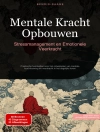This book offers a comprehensive overview of the purpose of history for psychology. Its purpose is to ask why history should be of concern to psychologists in teaching and research, and in theory and in practice. The future position of humanities subjects is currently highly debated on all fronts. Chapters focus on the arguments from psychologists, upgrade the precision and quality of discussion, and thus, provide a base for affirming the place of history of psychology in the broad field of psychological activity.
A fundamental question dominates the discussion. Is the purpose of the history of psychology to serve current psychology, rather than to contribute to historical knowledge – and to enter large debates about what historical knowledge means for being human? If the answer is yes, as most psychologists who come to the issues will presume, in what ways? Are these ways philosophically grounded, or do the social and political conditionsof power and funding in universities dominate the arguments? In this volume, the contributors demonstrate the relation between historical investigations and current practice.
Featured topics include:
- The history of psychology and its relation to feminism.
- The history of psychology and its relation to current research assessment and curriculum.
- The history of science and its relation to psychology.
- The metalanguage for psychology.
- Case studies of history in theory construction.
Centrality of History for Theory Construction in Psychology will be of interest to psychologists, professors, graduate psychology students, and scholars in the human sciences.
Spis treści
Part I: Theory and Practice .- Chapter 1. History of Psychology – What For?.- Chapter 2. The Universal and the Particular in Psychology and the Role of History in Examining Both.- Chapter 3. Six Meanings of the History of Science: The Case of Psychology.- Chapter 4. Beyond the 'Variables’: Developing Metalanguage for Psychology.- Chapter 5. The Shackles of Practice: History of Psychology, Research Assessment, and the Curriculum.- Chapter 6. History for 'Polycentric’ Psychological Science: An 'Outsider’s Case’.-
Part II: History At Work .- Chapter 7. The Dominant as a Model Chronogenic Challenge: The Relevance of A.A. Ukhtomsky’s and L.S. Vygotsky’s Traditions for Systemic Cognitive Studies.- Chapter 8. Constructiveness in the History of Psychology: Bartlett from Past to Future.- Chapter 9. A History of Psychology’s Complicated Relationship to Feminism: Theorizing Difference.- Chapter 10. Autonomy, Theory, and 'Applied’ versus 'Basic’: Work Psychology and Its Search for Identity in Finland, ca. 195 – 2000.- Chapter 11. Subjectivity in the History of Psychology – A Systematic or a Historical Change?.-
Part III: Commentary .- Chapter 12. Commentary I: Functions and Trends in the History of Psychology.- Chapter 13. Commentary II: The Past and the History of Psychology.
O autorze
Sven Hroar Klempe is Associate Professor in Psychology at the Department of Psychology, Norwegian University of Science and Technology in Trondheim, Norway. His background includes time as full Professor in Musicology, Associate Professor in Media Studies, teacher, and journalist. His research is cross disciplinary, with an emphasis on the history of psychology, culture and psychology, theory of science, communication, and music psychology. His recent book is Kierkegaard and the Rise of Modern Psychology (Transaction, 2014).
Roger Smith is Reader Emeritus in History of Science, Lancaster University, UK, associate of the Institute of Philosophy, Moscow, Russia, and independent scholar. He is a past President of the European Society for the History of the Human Sciences. His Fontana/Norton History of the Human Sciences is online at: www.rogersmith.ru. His recent books are Between Mind and Nature: A History of Psychology (Reaktion Books, 2013) and Free Will and the Human Sciences in Britain, 1870-1910 (Pickering & Chatto, 2013). He is currently working on the history of kinaesthesia, the sense of reality, and cultures of movement.












